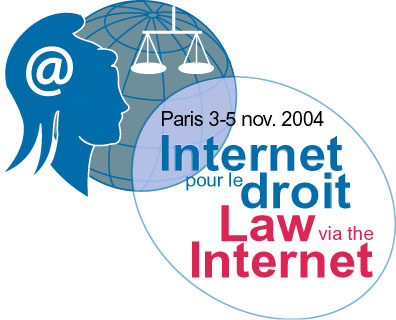Accueil > 6ème édition des Journées "Internet pour le droit" > Les interventions > Jeudi 4 novembre 2004 : La création, l’évolution et la diffusion de (...) > La diffusion internationale des droits nationaux sur Internet : organiser (...)
 La diffusion internationale des droits nationaux sur Internet : organiser l’accès aux données juridiques nationales par les fournisseurs de contenus étrangers
La diffusion internationale des droits nationaux sur Internet : organiser l’accès aux données juridiques nationales par les fournisseurs de contenus étrangers
jeudi 4 novembre 2004, par
Toutes les versions de cet article : [English] [français]
Dr Uta KOHL, Lecturer in Law, Department of Law, University of Wales, Aberystwyth - Pays de Galles
Author
Dr Uta Kohl
Lecturer in Law
Department of Law
University of Wales, Aberystwyth
Hugh Owen Building
Aberystwyth SY23 3DY, UK
utakohl@hotmail.com
Tel : 44 1970 622738
Title
Multi-State Liability of Online Actors : How Accessible Must or Should National Law be to Foreign Online Content Providers ?
Abstract
The paper examines to what extent the legal exposure of online actors to multiple foreign laws creates an obligation on States to make their laws easily accessible to foreigners via the Internet as well as what such ‘easy accessibility’ actually entails. The paper builds on more general research on the right to accessible law offline as well as online (as for example by Tom McMahon) and examines more specifically the interrelationship between (a) the extent of liability, (b) the profile of the legal subject and (c) the accessibility of the law, from the overall perspective of how to achieve efficient law.
The paper starts from the premise that the Internet has created an environment where transnational trade in the broadest sense is no longer the prerogative of resource-rich multinational companies with large in-house legal departments to advise them on their respective legal position in different jurisdictions.
This coupled with the growing world-wide jurisprudence according to which online content providers are expected to comply with the laws of the places where their sites can be accessed, gives rise to overregulation and consequently non-compliance. This is an undesirable consequence both for the States as well as the online actors. One way to remedy the problem is to make the laws more easily accessible over the Internet. The question is how far must (as a matter of legal obligation) or should (as a matter of policy) States go in this accessibility quest.
Table of Contents
1. The Internet, National Law & the New Transnational Actor
(a) Multi-state liability of online actors
Private law eg. defamation, contract, negligence
Public law eg. gambling, pornography, advertising
(b) A changed profile : traditional transnational actors versus online transnational actors
(c) The legal challenges arising from the changed profile - for the State as well as for the actors themselves
2. Is there a Legal Right to (Easily) Accessible Law ?
(a) How is the law actually accessible eg. in the UK ?
(b) Is there a legal right to accessible law ?
The rule-of-law requirements versus secret law
A statutory, constitutional or human right ?
(c) Why does law need to be accessible ?
Justice and practicality/legal compliance
Contrast direct regulation & indirect regulation eg. through code (L Lessig)
(d) How easily accessible must (as a matter of right) or should (as a matter of policy) the law be ?
Degrees of accessibility : where is the law published ; is access free ; is it intelligible to the ordinary person or just to the specialised lawyer
3. Does the multi-state legal exposure of ‘poor’ online actors require that States publish on the Internet the laws they expect them to comply with ?
(a) How easily can online foreign actors actually access the law of eg. UK, Australia or Germany ?
(b) How easily accessible must (as a matter of right) or should (as a matter of policy) the law be to foreigners ? Do States need to make extra provisions to make their law as easily accessible to outsiders as it would be to locals ?
Location of law : online/offline ? where online ?
Cost : free access ?
Intelligibility : which language, simple language, summaries ?
